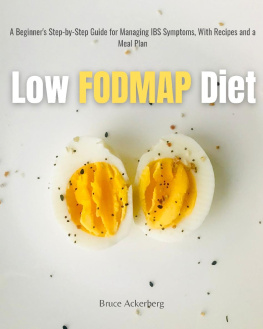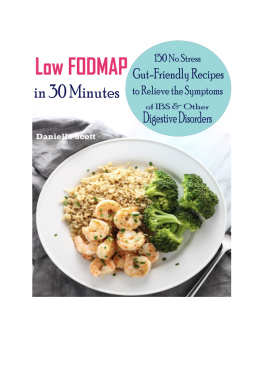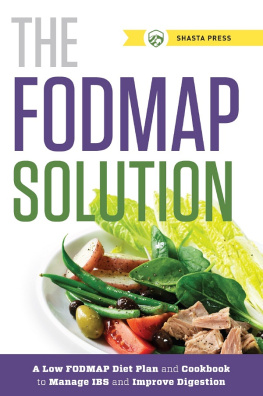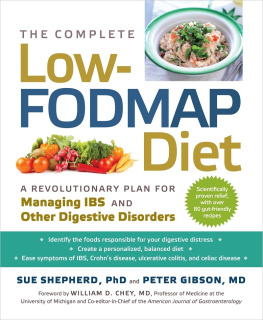Some myths to dispel More fiber ... or not? Dairy matter Common Mistakes
INTRODUCTION
You will surely have read that the INTESTINE can be defined as our second brain, as if the word itself resembled a small head inside our belly!
Irritable bowel syndrome is a functional disease affecting about 10-20% of the population and its symptoms very often include abdominal pain and alterations in bowel regularity.
The causes are still quite uncertain and numerous factors have been implicated, including an alteration in the motility of the intestine, an altered communication between the brain and the "digestive tract", an increase in abdominal sensitivity and some psychological variables.
In the 1990s, although symptoms were proven to arise or worsen after a meal, the prevailing belief was that food played a secondary role in IBS, but rather doctors believed IBS was caused by abnormal activity and hypersensitivity in the gastrointestinal (GI) tract, with significant contributions from psychological factors such as depression and anxiety. Unfortunately, doctors in those years received little or no training on the role of diet and nutrition in the management of gastrointestinal disorders such as IBS (Irritable Bowel Syndrome).
Patients were usually told to eat smaller meals, reduce their intake of fatty foods, and eat more fiber. These recommendations were the standard of care for irritable bowel sufferers until the new century. Unfortunately, both patients and doctors have become increasingly frustrated with the inconsistent results obtained from these recommendations.
The difficulty in obtaining useful dietary advice from doctors and other healthcare professionals and the growing interest in more comprehensive approaches to managing irritable bowels have led many patients to take matters into their own hands with highly restrictive do-it-yourself diets. And potentially dangerous. Several "unique" IBS diets have received attention over the years, but very few of these have been based on clear scientific rationale or have been found to be effective in high-quality clinical research studies.
Therefore, as in all pathologies not yet fully known, even irritable bowel syndrome offers patients few effective therapeutic solutions.
Food, contrary to what was previously thought, plays an essential role and most of those suffering from this syndrome describe some foods as causes of intestinal symptoms.
And even today we often try to eliminate certain types of food to relieve ailments. For example, since gluten and dairy products have often been cited as the culprits of intestinal problems, including uncomfortable abdominal pain and swelling lately, many try to avoid bread, pasta and dairy products. In fact, many people tend to feel better and less swollen by doing so. The reason for this, however, is not attributable to the elimination of gluten and milk derivatives but, rather, to the elimination of FODMAPs also present in wheat and milk.
Unfortunately, however, there is no one-size-fits-all solution as reactions to food change from individual to individual.
However, the low-FODMAP diet certainly offers a viable therapeutic alternative for many patients, changing doctors 'views on the role of diet in managing irritable bowel syndrome and replacing initial skepticism with enthusiasm based on' evidence.
In fact, there have been many testimonies of patients who have returned with considerable improvement, demonstrating that this diet is a "rescue" strategy intended exclusively for those who have failed all other therapies.
In particular, the presence of FODMAPs in food was able to clarify how swelling, pain and constipation / diarrhea can occur even in the absence of pathological causes (allergies to certain foods, intolerances to certain foods or nutrients such as lactose, dysfunctions obvious organic ...)
Thanks to this, today science is able to provide a completely natural highly effective solution; moreover it is possible to work at a strictly dietary level on FODMAPs even if a certain competence and needed nutritional and gastroenterological mastery is to do it well and correctly
This book was created to provide concrete help to allow readers to follow this diet and find relief from these disorders that affect the social life of those affected.
The acronym is formed by the English terms Fermentable Oligosaccharides, Disaccharides, Monosaccharides and Polyols (oligosaccharides, disaccharides, fermentable monosaccharides and polyols) which indicate some simple sugars that are fermented by intestinal bacteria.
The first part of this book is more theoretical and will first explain how the digestive system works, an essential point to understand the connection with nutrition and intestinal disorders.
Next you will find an analysis of inflammations and chronic diseases, useful for understanding your problem more deeply.
The third chapter will provide you with the foundation for understanding the logic of a low-FODMAP diet and its application process. You will be introduced step by step through the stages of the diet, understand its benefits and learn more about foods, how FODMAPs affect the digestive system.
There are not many scientific studies supporting the FODMAPs diet and they have all been performed on small groups of patients and for short periods of time. However, the scientific evidence has led to the conclusion that this diet can only be recommended for patients determined to resolve the gastrointestinal symptom process that torments them, but only under the supervision of an expert dietician to avoid restrictive do-it-yourself diets that a in the long run they could cause damage to your body.
Here, after an initial phase of restriction, you will carry out challenges in which you will try to reintroduce FODMAPs into your diet based on the results obtained. This will eventually lead to a modified and personalized diet in the long term, replenishing previously eliminated foods based on your tolerance for certain foods.
There is also an extensive FAQ section at the end of the book with many valuable answers to the common problems encountered by the reintroduction phase.
We therefore hope that you will find in these pages some useful tips to find intestinal harmony, as well as to improve your relationship with food. If at the end of the path the results are as effective as we believe, you will surely have a more satisfying social life and you will also feel physically fitter. In fact, remember that health starts from the intestine!
CHAPTER
A high percentage of the population suffers from intestinal functional disorders of a chronic nature which, due to their persistence and intensity, compromise the quality of life in the social, work and emotional fields.
Among these disorders, the most commonly diagnosed is Irritable Bowel Syndrome (IBS). Because it is not possible to identify a well-defined cause through medical tests, the diagnosis of IBS is based on a number of symptoms such as abdominal pain, swelling and changes in the hive. In addition, environmental and lifestyle factors associated with psychological distress and tension can also favor the onset of symptoms.







